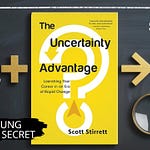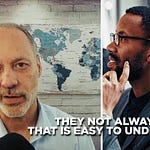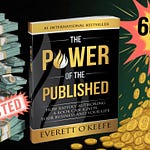Last week, I sat down with Tillman Holloway—former University of Texas All-American offensive lineman turned Bitcoin visionary—and he shattered everything I thought I knew about money, discipline, and the future of wealth creation.
This isn't just another crypto success story. This is a masterclass in how the same principles that create elite athletes can revolutionize how conscious leaders think about building generational wealth.
The Moment Everything Changed
Tillman's journey began with devastation. Fresh out of college, riding high on football success, he built a thriving construction business. Then 2008 hit like a blindside tackle.
"I went from banks fighting for my business to loan officers calling me every day demanding payment," he told me, his voice carrying the weight of that memory. "That's when I realized the banks are only there for people who don't need them."
But here's where the story gets interesting. Instead of accepting the traditional financial system's limitations, Tillman discovered Bitcoin in its earliest days. Not as a get-rich-quick scheme, but as something far more profound: equal access to financial opportunity for everyone on earth.
"In its truest essence, Bitcoin gives 6 billion unbanked people a bank account without filling out a single piece of paper," he explained. "That's not just good for them—it's good for the entire global economy."
The Discipline That Changes Everything
Here's what most people miss about successful trading (and leadership): it's not about being smart. It's about being disciplined enough to remove emotion from decisions.
Tillman shared something that stopped me cold: "In football, every practice is filmed from scissor lifts. The next day, we watch every step we took. The coaches have a saying: 'The eye in the sky don't lie.' You're accountable for every single step."
This level of accountability—this brutal honesty about performance—is exactly what separates elite athletes from everyone else. And it's exactly what separates successful automated trading from emotional financial chaos.
"Trading is highly emotional," Tillman continued. "When you're up, you're scared to sell because you might miss the big spike. When you're down, you're scared to sell because it means accepting failure. But software doesn't have emotions. It executes the strategy you created when you were thinking clearly."
The Revelation That Rewrites Everything
Then Tillman said something that fundamentally shifted my understanding of money:
"Volatility isn't a discount—it's an asset. It's a feature."
Think about that. While most people see market volatility as risk, Tillman sees it as opportunity. His algorithm buys Bitcoin on giant red candles (when everyone is selling in panic) and sells portions on giant green candles (when everyone is buying in greed).
"You never buy on a green candle with our software. Ever. That's something exceptionally difficult to pull off as a manual trader."
This isn't just about Bitcoin. This is about a fundamental principle that applies to every area of conscious leadership: the ability to see opportunity where others see chaos.
The Future Is Already Here (For Some)
Perhaps the most mind-bending part of our conversation was Tillman's prediction about the next 36 months:
"Everything on paper will be tokenized. Your car title will be a token. Your mortgage deed will be a token. All securities will be tokenized."
He painted a picture of a frictionless economy where smart contracts execute automatically based on real-world data. Imagine buying flight insurance that pays you instantly at the gate when your flight is canceled, triggered by weather APIs and flight data that can't be manipulated.
"That type of frictionless money transfer is exponentially better than filing claims and waiting for approval," he said. "Imagine that efficiency at scale, in every industry."
The Leadership Lesson Hidden in the Algorithm
Here's what I kept thinking about long after our conversation ended: The same principles that make Tillman's trading algorithm successful are the principles that make conscious leadership work.
Remove emotion from critical decisions
Create systems that work when you're not actively managing them
See opportunity where others see chaos
Build accountability into every action
Focus on long-term accumulated advantage, not short-term wins
Whether you're building automated wealth or building a conscious company, the fundamentals remain the same: discipline, systems thinking, and the courage to act when others are paralyzed by fear.
The Question That Changes Everything
As our conversation wrapped up, I asked myself: What if the same level of systematic discipline that creates elite athletes could be applied to every area of my leadership and wealth-building?
Tillman's story isn't just about Bitcoin or trading algorithms. It's about what becomes possible when you combine ancient wisdom (discipline, patience, systems thinking) with modern technology.
"Success is about failing without hesitation," he told me early in our conversation. "You have to learn from your failures, and most people are just scared of failing."
But here's the deeper truth: When you build systems that learn from failure automatically, you transform failure from something to fear into data that makes you stronger.
Your Move
The leaders who will thrive in the next decade won't be those who resist technological change or those who abandon human wisdom for shiny new tools. They'll be the ones who, like Tillman, combine timeless principles with cutting-edge systems.
The question isn't whether AI and automation will change how we build wealth and lead organizations. The question is: Will you be the one using these tools consciously, or will you be left behind by those who do?
What systems in your leadership or wealth-building could benefit from the kind of disciplined automation that Tillman has mastered? Where are your emotions making decisions that systematic wisdom should be making?
The future belongs to those who can see volatility as an asset, chaos as opportunity, and discipline as the ultimate competitive advantage.
Ready to dive deeper? You can explore Tillman's approach at ArchPublic.com and connect with him on LinkedIn.
What resonated most with you from this conversation? Hit reply and let me know—I read every response.
Join the conversation: What's one area of your leadership where systematic discipline could replace emotional decision-making? Share your thoughts in the comments below.
This article is part of The Self-Aware Leader's Playbook. If you found value here, consider joining our Inner Circle community where conscious leaders gather to share insights, challenges, and breakthroughs without the BS.
https://selfawarepodcast.com/











